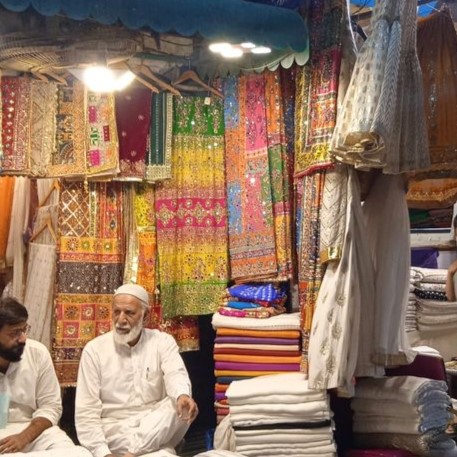In the vibrant spectrum of global fashion, Pakistani textiles have emerged as a resplendent force, weaving stories of tradition, creativity, and elegance. Clothing designs that are inspired by Pakistani textiles, fabrics and silhouettes are seen on public figures as well as global runways. Rooted in centuries-old heritage, textiles are not mere fabrics – their cultural narratives are intricately stitched together, each thread reflecting the essence of South Asian artistry. Pakistani fashion is in the midst of a renaissance, where authenticity meets innovation, creating a profound impact on the international fashion landscape as time passes.
The authenticity embedded within Pakistani textiles is unparalleled. Rich silks, delicate chiffons, and intricate embroideries tell tales of generations of skilled craftsmanship. This authenticity is the cornerstone of Pakistani fashion, blending seamlessly with contemporary design sensibilities. Pakistani designers have mastered the art of preserving traditional aesthetics while infusing them with modern cuts and styles. Each piece, whether adorned with the vibrant hues of Sindhi Ajrak or the timeless charm of Balochi mirror work, resonates globally, offering more than just clothing – it offers a connection to a cultural legacy.

Pakistani influence on global fashion is not limited to aesthetics; it’s a catalyst for cross-cultural understanding. By embracing diverse influences, Pakistani designers foster dialogues between traditions. Fashion, in this context, becomes a language that transcends geographical boundaries. Pakistani-inspired designs have found their way into international runways, making a significant impact. Gucci’s Spring/Summer 2019 collection, adorned with intricate Pakistani embroideries, exemplified this fusion of Italian sophistication and South Asian heritage. Similarly, Stella McCartney’s Fall/Winter 2020 collection seamlessly integrated South Asian-inspired prints, showcasing the versatility of Pakistani textiles while emphasising ethical fashion practices.

The importance of Pakistani textiles in the global fashion arena goes beyond trendsetting. It represents a harmonious blend of cultural heritage and modern creativity. In an era where sustainability and ethical fashion are gaining momentum, Pakistani designers are at the forefront, focusing on eco-friendly materials and fair trade practices. This growing emphasis on ethical fashion aligns seamlessly with the global shift towards conscious consumerism, making Pakistani textiles not only culturally significant but also socially responsible.
As Pakistani influence in the fashion world continues to grow, it fosters a sense of pride among Pakistanis and admiration from the global community. Pakistani designers are no longer regional players, they are international trendsetters, showcasing the nation’s artistry to the world. The impact of Pakistani textiles is not fleeting; it’s a testament to the enduring appeal of cultural heritage in a rapidly changing world. With each stitch, Pakistani fashion is stitching together a narrative of innovation, tradition, and global connectivity, ensuring that the world remains captivated by the magic woven into every piece.
Featured Image: Raastah (March, 2022)

